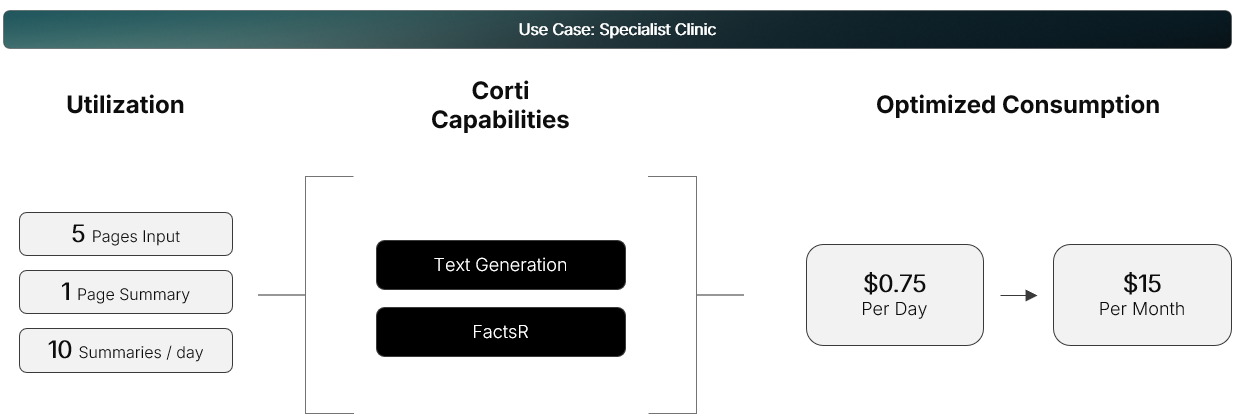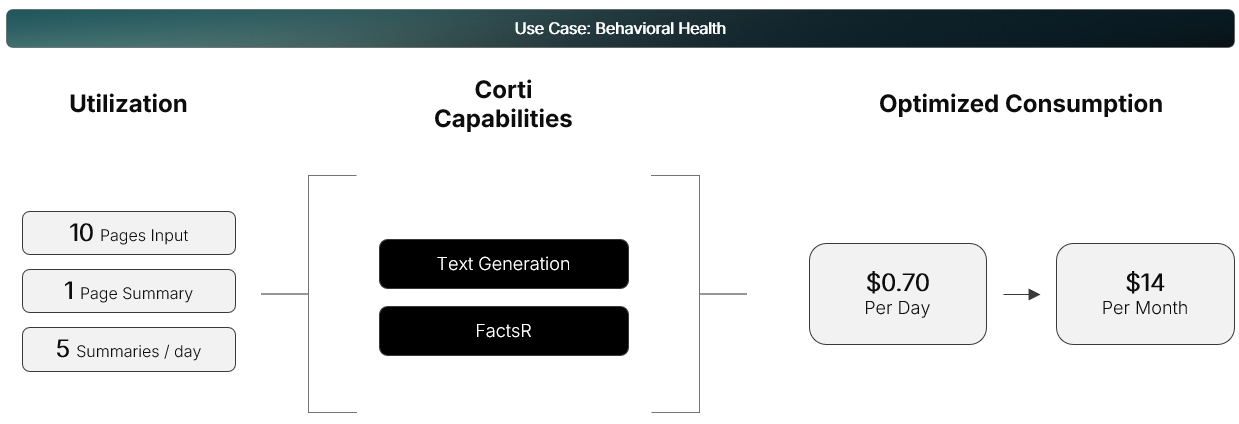Pre-charting summarization: three use cases built on Corti
Turning messy medical history into meaningful pre-charting insight

Introduction
Healthcare pre-charting looks different in every specialty — from primary care providers prepping packed schedules to specialists reviewing years of longitudinal data and therapists scanning session histories. Teams building pre-charting tools need infrastructure that can synthesize complex records into actionable, structured insights — safely and accurately.
Below are three real-world examples showing how developers can use Corti to power production-ready pre-charting workflows, with enterprise-grade accuracy, reliability, and flexibility across clinical settings.
Primary care: prepping a packed schedule
Typical workflow
A telemedicine platform enabling primary care providers to prepare for 20+ visits per day. Clinicians face time pressure and large patient panels — they need quick snapshots of what’s changed since the last encounter. The goal: summarize recent updates, unresolved issues, and preventive care gaps before the visit begins.
Architecture needs
- EHR integration to retrieve the last 3–5 notes, labs, orders, and referrals
- Summarization tuned to time delta (since last visit)
- Structured outputs: active problems, new results, pending actions, care gaps
- Clinical reasoning to surface abnormal trends and guideline-based reminders
- Support for multiple formats (SOAP summary, bullet view, table)
💡 Illustrative cost example:

Specialist clinic: deep review of complex cases
Typical workflow
A cardiology EMR extension building automated chart summaries for complex chronic patients. Encounters involve multi-year data — serial echos, medication changes, comorbidity management — requiring precision and context-aware reasoning. The platform’s goal is to produce trend-based, problem-oriented summaries that support rapid review.
Architecture needs
- Long-context reasoning across multi-year structured and unstructured records
- Signal extraction from notes and labs
- Trend summarization for key metrics (EF, LDL, BP, weight)
- Contextual reasoning on medication adherence and titration
- Highlighting care continuity issues (missed follow-ups, incomplete testing)
💡 Illustrative cost example:

Behavioral health: preparing for therapy sessions
Typical workflow
A mental health platform helping psychiatrists and therapists prepare for 45–50 minute sessions by summarizing recent visits, mood trends, and unresolved topics. Clinicians need concise insights on progress, risk factors, and goals without combing through past notes.
Architecture needs
- Dialogue summarization across multiple sessions
- Extraction of themes, goals, and risk factors
- Reasoning to surface unresolved concerns and progress indicators
- Outputs structured for reflection and treatment planning, not billing
- Support for custom prompts (e.g. “Topics to revisit,” “Progress since last session”)
💡 Illustrative cost example:

Looking ahead
Whether you’re building for primary care pre-charting, specialty case reviews, or therapy session prep, Corti’s infrastructure adapts to every workflow — delivering clinical accuracy, compliance, and production-grade performance at optimized cost.
Stop stitching together generic summarization models. Build your pre-charting system the right way — with Corti.
